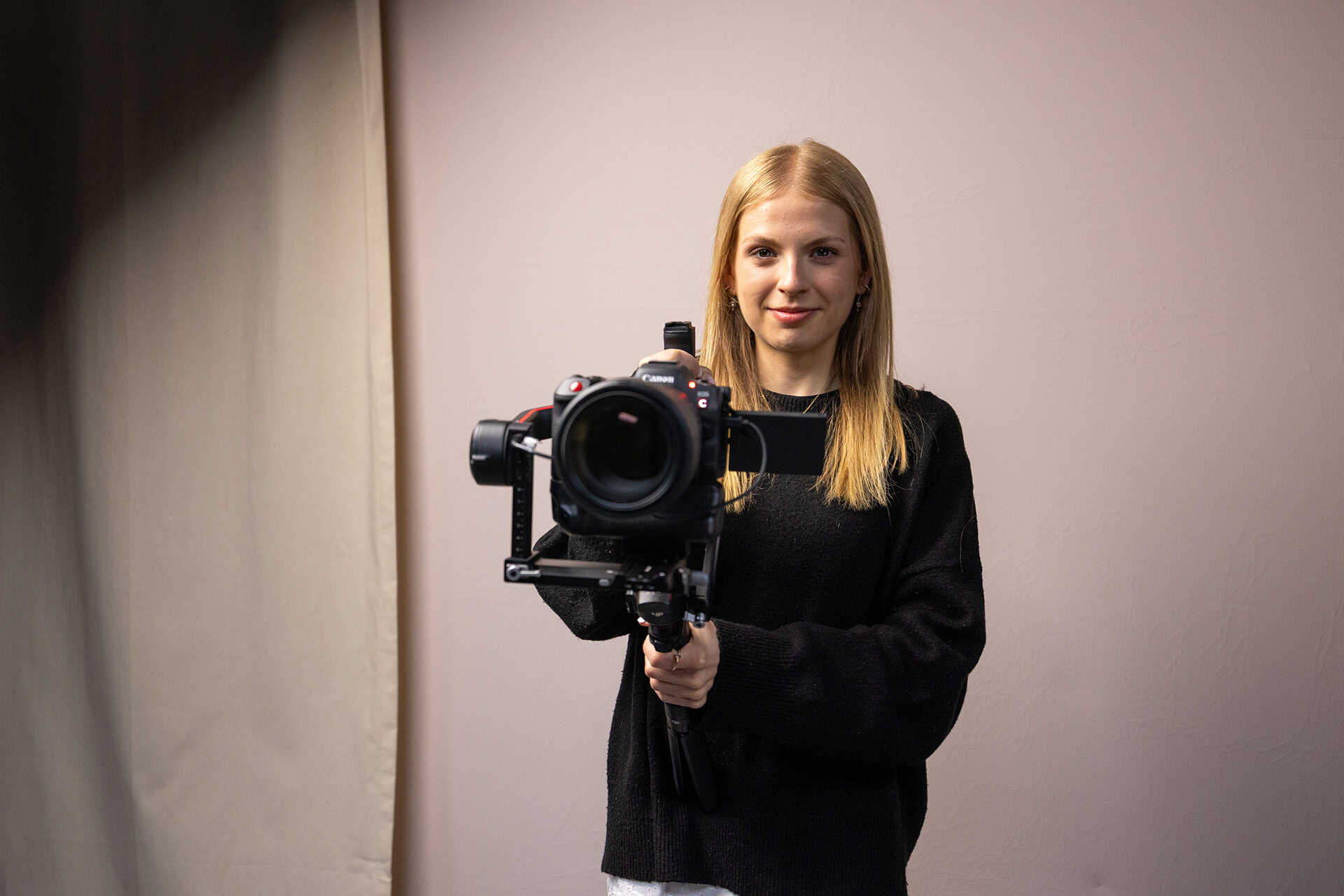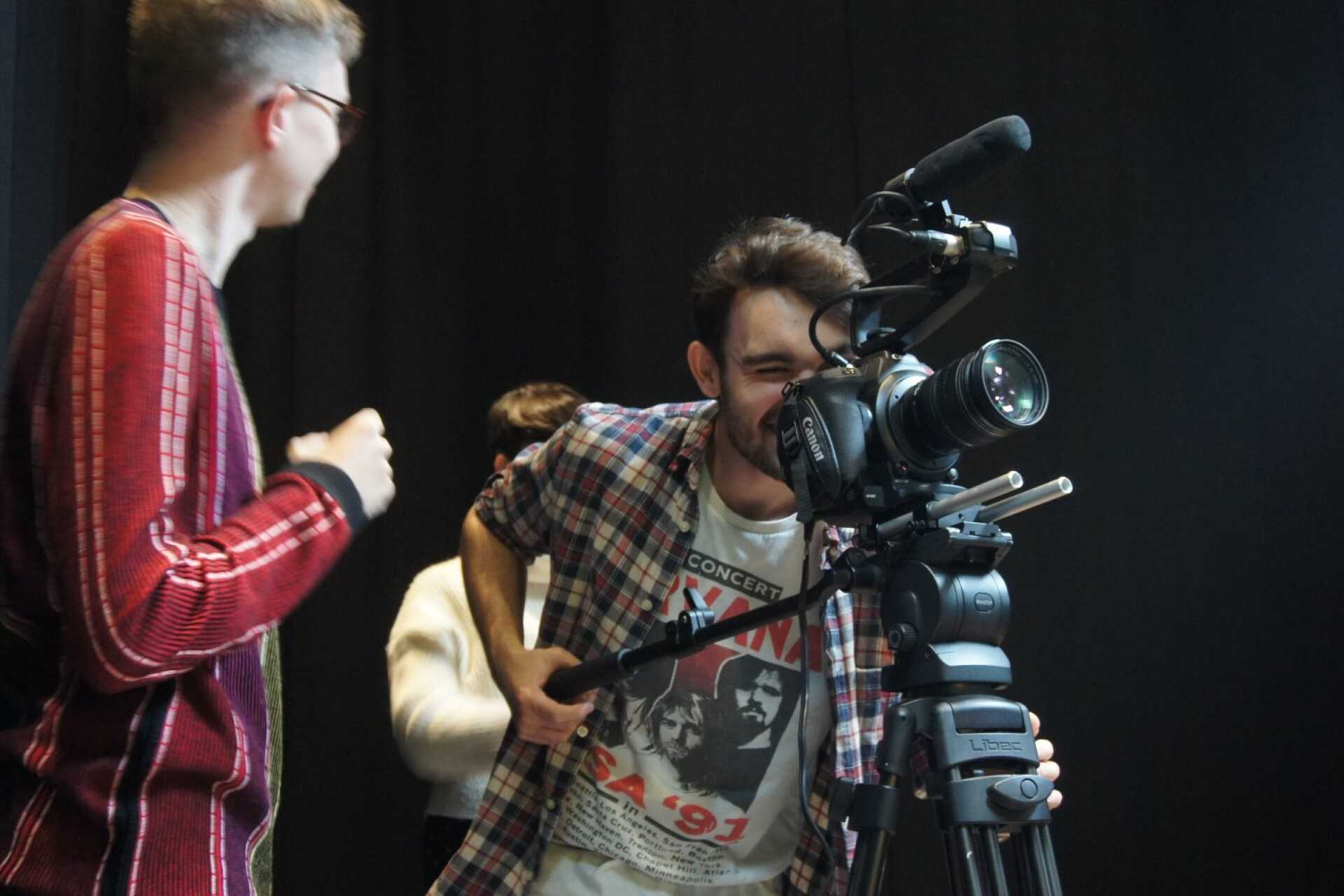What can I do with a degree in Film?

A degree in Film, or Film and Media, from the University of Kent equips you with skills such as practical production skills, critical analysis, storytelling abilities, and media literacy. These competencies open doors to diverse careers in the creative industries and beyond. Get ideas and inspiration here before booking a one-to-one appointment with a Careers Adviser.
Careers in Film and Media
The following roles illustrate the career opportunities available to Film and Media graduates, reflecting their creative, technical, and analytical skills.
Film/TV producer - Overseeing productions from development through to post-production, coordinating budgets, schedules, and creative direction.
Director - Leading the artistic vision of films, series, or advertisements, guiding cast and crew, with ultimate responsibility for the production.
Screenwriter - Crafting scripts for film, television, and other visual media, developing dialogue, characters, and story arcs. May involve writing own ideas or commissioned scripts.
Film/Video Editor - Assembling and refining visual and audio content for various platforms, using creative and technical skills to ensure the finished product is suitable for broadcast.
Director of Photography (Cinematographer) - Designing camera and lighting setups alongside the Director to create the visual and photographic style of a production.
Media Researcher - Supporting production teams with research into topics, contributors, and settings.
Broadcast Assistant (Runner) - Assisting in radio or TV production, operating equipment, logging footage, or supporting presenters and producers to ensure smooth running of the production process.
Alternative career paths
Content Creator/Social Media Manager - Producing original media content for online platforms, including YouTube, TikTok, Instagram, and podcasts, and/or leading a social media strategy to boost visibility and customer/client engagement.
Digital Marketing Executive - Developing campaigns, creating content, and analysing performance to communicate with consumers and promote sales and activities.
Public Relations Officer - Building a positive public image and communications strategies for individuals or organisations.
Teacher/Lecturer - Educating students in film, media, or communications at various educational levels.
Archivist - Preserving and managing collections of (audio-visual) material to make it accessible to others.
Festival/Film Programmer - Curating content for film festivals and cultural events, and liaising with creators and venues.
Where do University of Kent graduates work?
Organisations that have previously employed University of Kent graduates include:
- Broadcasting and Production: BBC, Channel 4, ITV, Netflix, Warner Bros.
- Film Companies: Pinewood Studios, Working Title Films, Lionsgate UK
- Post-Production Houses: Framestore, The Mill, Molinare
- Advertising and Digital Agencies: Saatchi & Saatchi, Ogilvy, VCCP
- Cultural Institutions: British Film Institute (BFI), Arts Council England
- Media Startups and Freelance
Many more opportunities exist across these and other industries. Graduates have also secured positions at Universal Pictures and the London Film Festival, as well as roles in film production, editorial assistance, and web design.

Find a job
The Careers and Employability Service provides information and advice on job searching to University of Kent students and recent graduates. This includes Uni Kent Careers Hub, advertising a range of graduate jobs, placement year and vacation work/internships.
Film recruitment platforms
Tips to stand out
Portfolio creation: Develop a showreel and online portfolio showcasing your work. Add this to your CV/LinkedIn profile.
Gain real-world experience: Add a Year in Industry to your degree, or gain experience through internships, student productions, or
freelance projects to develop workplace and technical skills.
Network: Use LinkedIn and Kent’s Career Mentoring scheme to build connections with alumni and professionals to gain insights into your target roles and industries. Further network and collaborate via festivals, screenings, and online forums like Shooting People or LinkedIn groups.
Build commercial awareness: Stay updated with trends in digital storytelling and online content through newsletters, podcasts and following industry leaders and influencers. Engage with industry bodies such as BAFTA, BFI, and ScreenSkills.
Develop technical skills: Learn and experiment with new industry required tools and platforms to showcase capabilities to prospective employers.

Year in industry
A year in industry can have a big impact on your employability. By gaining real-world experience and learning key skills in the workplace, and pairing these with the knowledge you gain on your degree, you can become a highly employable candidate in the labour market. The year can be based in the UK or abroad, including your home country if you're an international student, and contribute to your final degree. At The University of Kent, many courses include an optional year in industry between your second and final year, where you undertake graduate-level work related to your studies.
Further study
Some graduates opt to further specialise, or change direction through postgraduate education. There are also industry-focused skills courses, including online options, that may be useful.